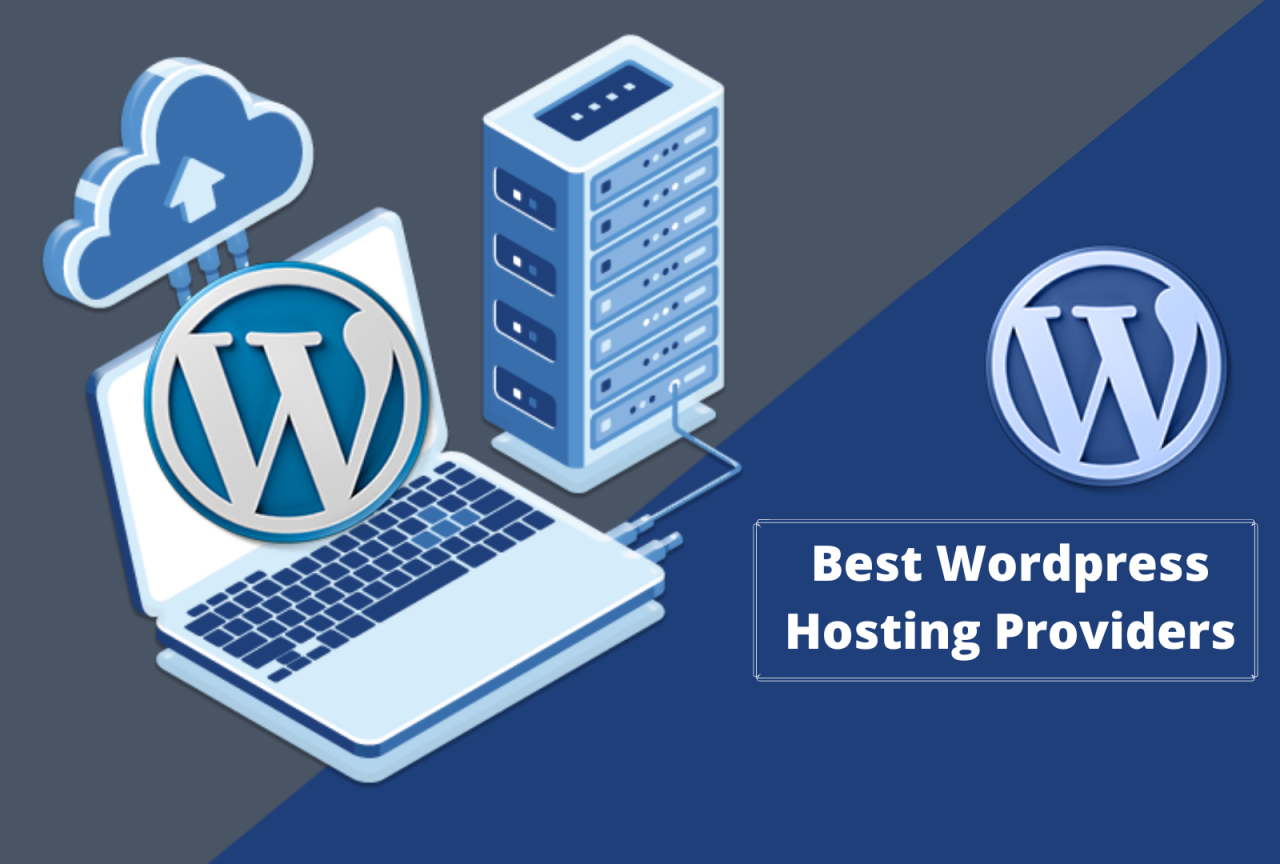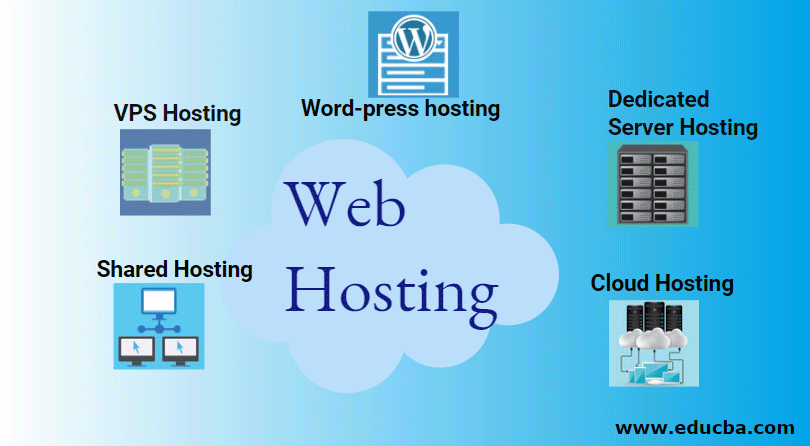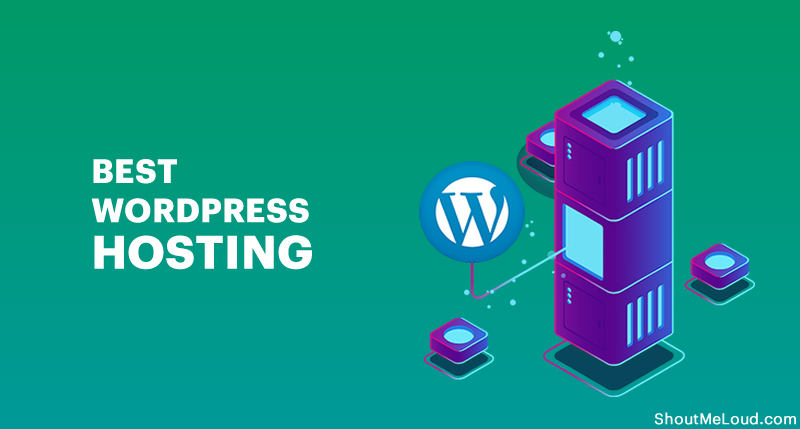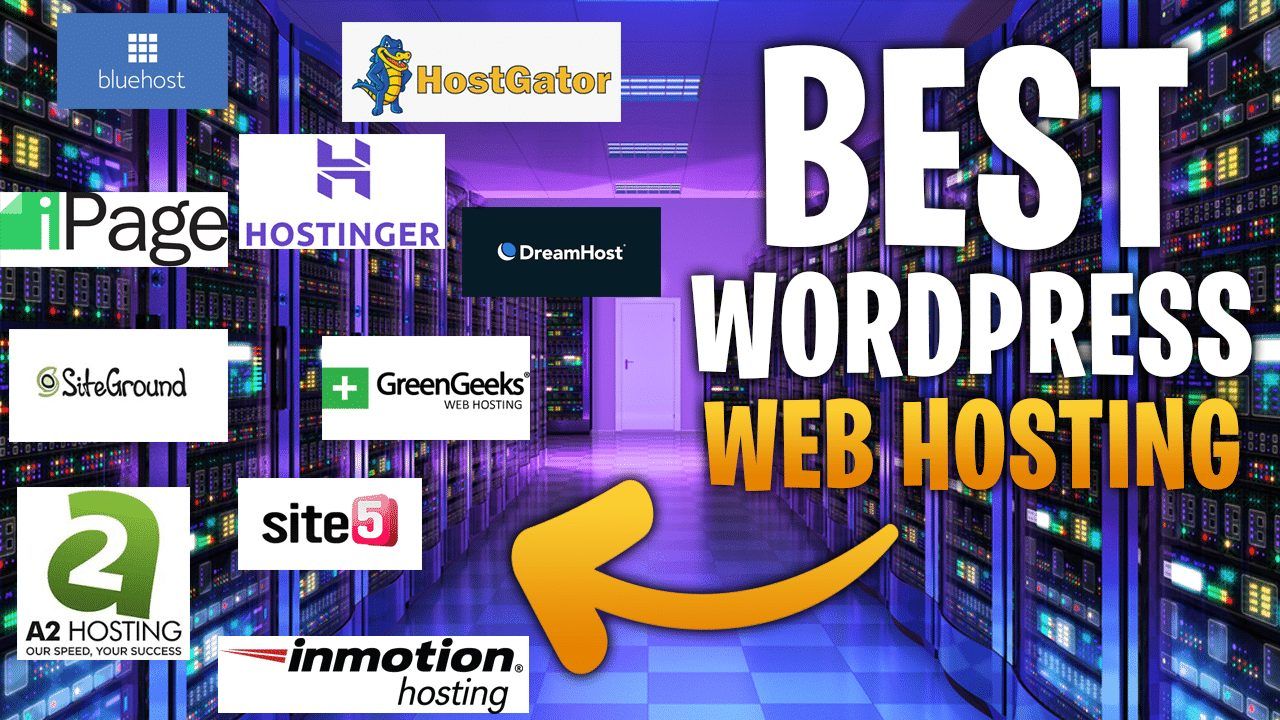Best website hosting for WordPress is crucial for a successful online presence. Choosing the right hosting provider can make a world of difference in terms of website speed, security, reliability, and overall user experience. From understanding your specific needs to navigating the intricacies of different hosting types, this guide will equip you with the knowledge and insights to make an informed decision.
Whether you’re a seasoned blogger, an ambitious entrepreneur, or just starting your journey into the world of WordPress, this comprehensive guide will walk you through the key considerations and factors to prioritize when selecting the best hosting solution for your website.
Understanding WordPress Hosting Needs
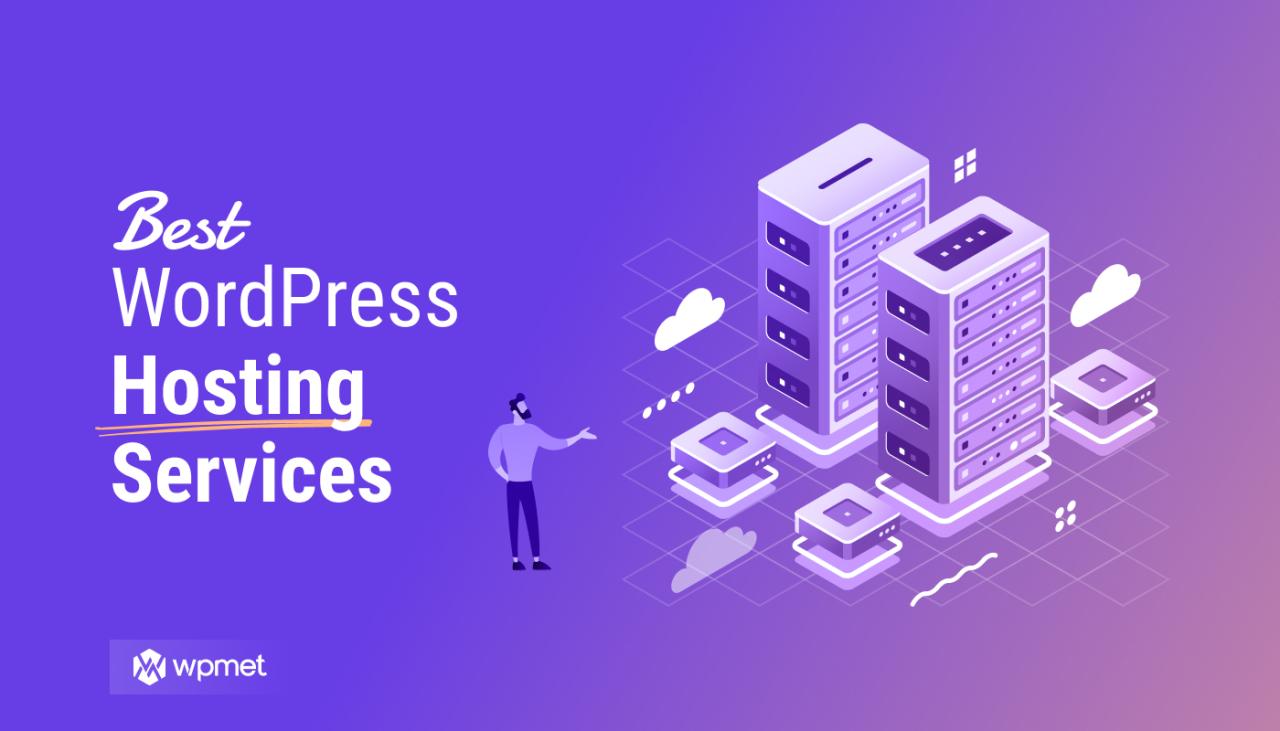
Choosing the right WordPress hosting is crucial for your website’s success. It determines how your website performs, its security, and its ability to handle traffic. Understanding your website’s specific needs will help you select the most suitable hosting plan.
WordPress Hosting Requirements
WordPress websites have specific hosting requirements that differ from standard websites. These requirements ensure smooth operation, optimal performance, and reliable security.
- PHP and MySQL Support: WordPress relies on PHP and MySQL for its functionality. Your hosting provider must support these technologies to ensure your website functions correctly.
- Sufficient Storage Space: The amount of storage space you need depends on the size of your website, including images, plugins, and themes. You’ll need enough storage to accommodate your website’s content and prevent issues related to storage limits.
- Bandwidth: Bandwidth refers to the amount of data that can be transferred to and from your website. Higher traffic websites require more bandwidth to avoid slow loading times and potential server overload.
- Regular Backups: Backups are essential to recover your website data in case of a security breach, accidental deletion, or technical issues. Choose a hosting provider that offers regular automatic backups.
Types of WordPress Hosting
Different types of WordPress hosting cater to various website needs and budgets. Understanding the differences between these options will help you make an informed decision.
- Shared Hosting: Shared hosting is the most affordable option, where multiple websites share the same server resources. This can lead to performance issues if other websites on the server experience high traffic. However, it’s a good choice for small websites with low traffic.
- VPS Hosting: VPS hosting provides a virtualized server environment, offering more resources and control than shared hosting. It’s a good option for websites with moderate traffic and specific performance requirements. You have more control over server settings but may require more technical knowledge to manage it.
- Dedicated Hosting: Dedicated hosting gives you an entire server dedicated to your website. This provides the highest level of performance and security, but it’s also the most expensive option. It’s ideal for high-traffic websites with demanding performance needs.
- Cloud Hosting: Cloud hosting uses a network of servers to distribute website traffic and resources. It offers scalability, meaning you can easily adjust resources based on your website’s needs. Cloud hosting is a good choice for websites that experience fluctuating traffic or require high availability.
Essential Features for WordPress Hosting
Several key features are essential for optimal WordPress hosting, ensuring your website performs well, remains secure, and scales as needed.
- Performance: Website speed is crucial for user experience and . Look for hosting providers that offer fast server speeds, caching mechanisms, and optimized server configurations to ensure quick loading times.
- Security: WordPress websites are susceptible to security threats. Choose a hosting provider that offers robust security features, such as firewalls, malware scanning, and regular security updates.
- Scalability: Your website’s traffic may increase over time. Choose a hosting provider that allows you to easily scale your resources, such as storage, bandwidth, and processing power, as your website grows.
- Support: Having reliable customer support is crucial when encountering technical issues. Look for a hosting provider that offers 24/7 support through various channels, such as live chat, phone, and email.
Performance and Speed
In the digital realm, speed is king. A fast-loading WordPress website is crucial for a positive user experience, higher search engine rankings, and ultimately, greater success. Slow websites, on the other hand, can lead to frustrated visitors, lost conversions, and a decline in your online presence.
Factors Affecting Website Speed
Several factors contribute to the overall speed of your WordPress website. Understanding these factors is essential for optimizing your site for performance.
- Server Location: The physical location of your server can significantly impact website speed. Choosing a server closer to your target audience geographically minimizes latency, resulting in faster loading times.
- Caching: Caching is a technique that stores copies of frequently accessed website data on a temporary server. This allows the website to load faster by retrieving data from the cache instead of processing it from the source each time.
- Database Optimization: A well-optimized database ensures efficient data retrieval, contributing to faster page loading. This involves techniques like indexing, query optimization, and data cleanup.
Features That Enhance Loading Times
Several features can be leveraged to improve the speed of your WordPress website.
- SSD Storage: Solid-state drives (SSDs) offer significantly faster read and write speeds compared to traditional hard disk drives (HDDs). This results in quicker access to website files, contributing to faster loading times.
- Content Delivery Networks (CDNs): CDNs distribute website content across multiple servers strategically located around the world. When a visitor accesses your website, the content is delivered from the nearest server, reducing latency and improving loading speeds.
- Optimized Server Configurations: Configuring your server to handle website traffic efficiently is crucial for speed. This involves optimizing server settings, such as PHP version, memory allocation, and caching configurations.
Security and Reliability: Best Website Hosting For WordPress
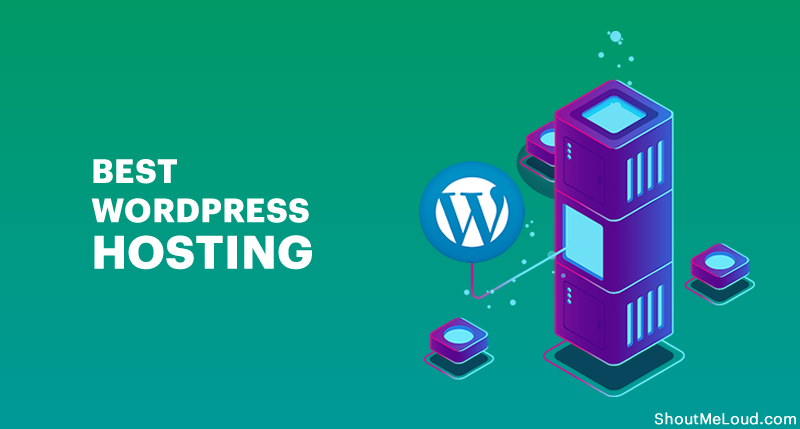
Choosing the right WordPress hosting provider goes beyond just performance and speed. It’s crucial to consider the security measures and reliability offered to ensure your website remains safe and accessible to visitors.
Security Features
Security is paramount for any website, but especially for WordPress websites, which are often targeted by hackers. Here’s a breakdown of common security threats and how hosting providers can help mitigate them:
- Malware and Viruses: Malicious software can infect your website, compromise your data, and potentially harm visitors. Hosting providers can offer malware scanning tools that regularly check your website for threats and remove any detected malware.
- Brute-Force Attacks: Hackers attempt to guess your login credentials by trying numerous combinations. Hosting providers often implement measures like rate limiting, which restricts the number of login attempts within a specific time frame, thus preventing brute-force attacks.
- SQL Injection Attacks: These attacks exploit vulnerabilities in your website’s database, allowing hackers to steal or manipulate data. Hosting providers can offer security features like database firewalls, which act as a barrier between your database and potential attackers.
- DDoS Attacks: Distributed Denial of Service (DDoS) attacks overwhelm your website with traffic, making it inaccessible to legitimate users. Hosting providers offer DDoS protection that mitigates these attacks by filtering malicious traffic.
Data Backup and Recovery
Data loss can be catastrophic for any website, especially for WordPress websites that rely on a complex ecosystem of plugins, themes, and content. Hosting providers offer different backup solutions:
- Automatic Backups: Regularly scheduled backups ensure that you have a recent copy of your website’s data in case of accidental deletion, security breaches, or other unforeseen events.
- Offsite Backups: Storing backups in a separate location, like a cloud storage service, protects them from potential threats that could affect your primary server.
- Version Control: Hosting providers may offer tools like Git integration that allow you to track changes made to your website’s files and revert to previous versions if needed.
Uptime and Reliability
Website downtime can have a significant impact on your business, leading to lost revenue and customer dissatisfaction. Hosting providers prioritize uptime and reliability through various measures:
- Redundant Servers: Having multiple servers ensures that if one server experiences issues, other servers can take over, minimizing downtime.
- Network Monitoring: Continuous monitoring of your website’s network infrastructure helps detect and address potential issues before they impact performance or availability.
- Data Centers: Hosting providers often choose data centers with robust infrastructure, backup power sources, and advanced security measures to ensure your website remains accessible even during power outages or other disruptions.
Ease of Use and Support
Managing your WordPress website should be a breeze, not a technical headache. That’s why choosing a hosting provider that prioritizes ease of use and excellent support is crucial.
Imagine a hosting platform that feels intuitive, like a well-designed app. This is what you should expect from your WordPress hosting provider. It’s not just about the technology; it’s about how easy it is for you to navigate, manage, and grow your online presence.
User-Friendly Control Panels
A user-friendly control panel acts as your central hub for managing your website. It’s where you’ll access essential features like installing WordPress, managing files, configuring databases, and setting up email accounts. A good control panel will be intuitive and clearly organized, with easy-to-understand menus and options.
Popular control panels like cPanel and Plesk offer a familiar and user-friendly interface. They provide a graphical interface with icons and menus that make it easy to navigate and manage your website’s settings.
Features That Simplify WordPress Management
Many hosting providers offer features specifically designed to make WordPress management effortless:
- One-Click WordPress Installation: This feature allows you to install WordPress with just a few clicks, eliminating the need for manual configuration. It simplifies the initial setup process, letting you focus on creating your website’s content.
- Automatic Updates: Keeping WordPress and its plugins up-to-date is essential for security and performance. Automatic updates ensure your website is always running the latest version, without you having to manually update each component.
- Website Staging Environments: A staging environment is a copy of your live website where you can test changes and updates before making them public. This allows you to experiment with new features, plugins, or design modifications without risking downtime or disrupting your live website.
Responsive Customer Support
Even with user-friendly features, you might encounter technical issues or have questions about your hosting environment. That’s where responsive customer support becomes invaluable.
A good hosting provider offers multiple support channels, such as live chat, email, and phone support. They should be available 24/7 to assist you with any technical difficulties or provide guidance on managing your website. Look for providers with a proven track record of quick response times and helpful solutions.
Comprehensive Documentation
Beyond direct support, a comprehensive knowledge base or documentation center can be a valuable resource. This resource should provide step-by-step guides, tutorials, and FAQs to help you troubleshoot common issues and learn how to effectively manage your website.
Finding the best website hosting for WordPress can be a bit overwhelming, but it’s essential for a smooth and efficient experience. Once you’ve settled on a hosting provider, you might need to transfer large files, and that’s where Tera Copy comes in handy.
It’s a powerful tool that can significantly speed up the process, especially when dealing with multiple files or large datasets. A reliable hosting provider combined with efficient file transfer tools like Tera Copy can make managing your WordPress website a breeze.
A well-organized documentation center can save you time and effort by providing quick answers to your questions and helping you resolve issues independently.
Scalability and Growth
Your website’s success depends on its ability to handle increasing traffic and demands. Scalable WordPress hosting ensures your website can grow alongside your business.
Hosting Plan Upgrades
Upgrading your hosting plan is crucial for managing traffic surges. As your website gains popularity, it may require more resources like processing power, storage space, and bandwidth. A reliable hosting provider allows you to easily upgrade to a plan that meets your needs. Many providers offer various plans with different resource allocations, making it simple to scale your hosting as your website grows.
Features Supporting Website Growth
- Resource Allocation: Scalable hosting allows for flexible resource allocation, enabling you to adjust CPU, RAM, and storage based on your website’s needs. This ensures smooth performance even during traffic spikes.
- Database Scaling: As your website expands, your database will grow to accommodate more data. Scalable hosting provides options for scaling your database, ensuring efficient performance and data storage.
- Load Balancing: Load balancing distributes traffic across multiple servers, preventing any single server from becoming overloaded. This enhances website performance and reliability, especially during peak traffic periods.
Pricing and Value
Choosing the right WordPress hosting plan can be overwhelming, especially with the wide range of pricing models and features offered by different providers. Understanding the value proposition of each plan and how it aligns with your specific needs is crucial for making an informed decision.
Pricing Models
The pricing models for WordPress hosting vary significantly, catering to different budget constraints and website requirements. Here are some common models:
- Shared Hosting: This is the most affordable option, where multiple websites share the same server resources. It’s suitable for basic websites with low traffic and minimal resource demands. Shared hosting plans typically offer limited storage, bandwidth, and features.
- VPS Hosting: Virtual Private Server (VPS) hosting provides a dedicated portion of a server’s resources, offering better performance and security than shared hosting. This option is ideal for websites with moderate traffic and resource requirements. VPS plans usually come with more storage, bandwidth, and features than shared hosting.
- Cloud Hosting: Cloud hosting distributes your website across multiple servers, ensuring high availability and scalability. This option is suitable for websites with high traffic, demanding applications, and unpredictable traffic fluctuations. Cloud hosting plans offer flexible resource allocation, pay-as-you-go pricing, and robust security features.
- Managed WordPress Hosting: This specialized hosting solution focuses on providing optimized performance and security for WordPress websites. It includes features like automatic updates, backups, security monitoring, and expert support. Managed WordPress hosting is ideal for businesses and individuals who prioritize ease of use and website reliability.
Value Proposition, Best website hosting for wordpress
The value proposition of each hosting plan depends on the features and resources it offers.
- Shared Hosting: Offers the lowest cost, but compromises on performance, security, and scalability. It’s suitable for basic websites with low traffic and minimal resource demands.
- VPS Hosting: Provides a balance between affordability and performance, offering better security and resources than shared hosting. It’s suitable for websites with moderate traffic and resource requirements.
- Cloud Hosting: Offers the highest flexibility, scalability, and performance, but comes with a higher price tag. It’s ideal for websites with high traffic, demanding applications, and unpredictable traffic fluctuations.
- Managed WordPress Hosting: Prioritizes ease of use and website reliability, providing optimized performance, security, and expert support. It’s ideal for businesses and individuals who value convenience and peace of mind.
Cost-Effectiveness
Evaluating the cost-effectiveness of hosting options requires considering various factors:
- Website Traffic and Resource Needs: Estimate your website’s traffic and resource demands to determine the appropriate hosting plan. Overpaying for resources you don’t need is inefficient, while underestimating your needs can lead to performance issues.
- Features and Resources: Compare the features and resources offered by different plans, including storage, bandwidth, databases, and security features. Choose a plan that provides the necessary features without unnecessary extras.
- Support and Maintenance: Consider the level of support and maintenance provided by the hosting provider. Managed WordPress hosting offers expert support and maintenance, while shared hosting often has limited support options.
- Scalability and Growth: Choose a hosting provider that offers flexible scaling options to accommodate future growth. Cloud hosting provides excellent scalability, while shared hosting can limit your ability to expand.
- Long-Term Value: Look beyond the initial price and consider the long-term value of the hosting plan. Managed WordPress hosting, while more expensive upfront, can save you time and money in the long run by reducing the need for technical expertise.
Final Thoughts
In conclusion, finding the best website hosting for WordPress involves a thoughtful evaluation of your website’s needs, budget, and long-term goals. By carefully considering factors like performance, security, ease of use, and scalability, you can choose a hosting provider that empowers your website to thrive. Remember, the right hosting solution is an investment in your online success, ensuring a seamless and enjoyable experience for both you and your visitors.

